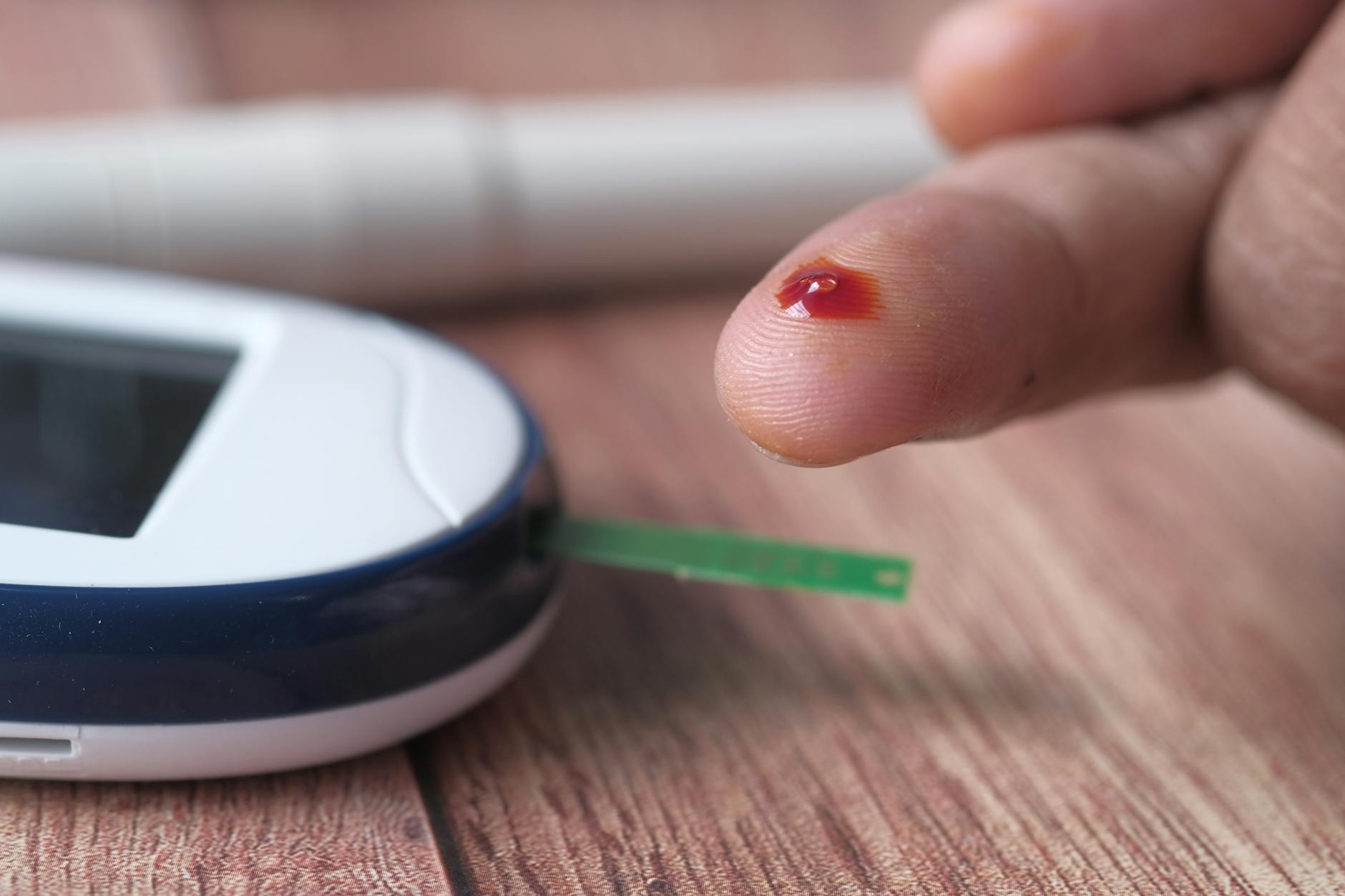Discover the safe and effective ways to manage gestational diabetes during pregnancy and ensure a healthy outcome for you and baby.
Table of Contents
- Introduction to Gestational Diabetes
- Understanding Gestational Diabetes
- Risk Factors for Gestational Diabetes
- Importance of Prenatal Care
- Diet and Gestational Diabetes
- Exercise during Pregnancy
- Diabetes Management Strategies
- Monitoring Baby’s Health
- Preparing for Birth
- Life after Pregnancy
- Questions and Help
- Conclusion
- Frequently Asked Questions (FAQs)
Introduction to Gestational Diabetes
Gestational diabetes, which affects pregnancy health, is a condition that some women may develop while pregnant. It is important to understand how this type of diabetes can impact both the mother and the baby during pregnancy. Managing gestational diabetes involves keeping a close eye on blood sugar levels and following proper prenatal care and a healthy diet.
Understanding Gestational Diabetes
Gestational diabetes is a type of diabetes that occurs during pregnancy and can affect how your body handles blood sugar levels. To understand gestational diabetes better, let’s dive into what blood sugar is and how pregnancy can change it.
What is Blood Sugar?
Blood sugar, also known as glucose, is a type of sugar that your body gets from the food you eat. It serves as a vital source of energy for your body’s cells. When you have gestational diabetes, your blood sugar levels can rise higher than normal, causing potential health risks for you and your baby.
How Pregnancy Affects Blood Sugar
During pregnancy, your body goes through several changes, including how it processes and uses glucose. Hormones produced by the placenta can sometimes interfere with the normal functioning of insulin, a hormone that helps regulate blood sugar. As a result, you may experience high blood sugar levels, leading to gestational diabetes.
Risk Factors for Gestational Diabetes
When it comes to gestational diabetes, some factors can increase the risk of developing this condition during pregnancy. Understanding these risk factors is essential to take steps to manage and prevent gestational diabetes effectively.

Image courtesy of diabetestimes.co.uk via Google Images
Common Risk Factors
Women who are overweight or obese before pregnancy have a higher likelihood of developing gestational diabetes. Additionally, if you have had gestational diabetes in a previous pregnancy, the chances of recurrence are higher. Family history also plays a role, so if close relatives have diabetes, especially type 2 diabetes, your risk may be higher. Age is another factor, with women over 25 being at a higher risk of gestational diabetes.
Other risk factors include polycystic ovary syndrome (PCOS), a condition that affects hormone levels in women and can lead to insulin resistance. High blood pressure, a history of giving birth to large babies, or experiencing gestational diabetes in earlier pregnancies can also increase the risk. Being physically inactive and having certain ethnic backgrounds, such as Hispanic, African American, Native American, Asian American, or Pacific Islander, can also be risk factors for gestational diabetes.
Importance of Prenatal Care
During pregnancy, taking care of both the mother and the baby is very important. This is why prenatal care, which involves regular visits to the doctor, is crucial. Prenatal care helps to ensure that any potential health issues, like gestational diabetes, are detected early and properly managed.
Regular Check-Ups
Going to the doctor regularly while pregnant is essential. These check-ups allow the healthcare provider to monitor the health of both the mother and the baby. By visiting the doctor, any signs of gestational diabetes can be identified and addressed promptly.
Blood Sugar Monitoring
Monitoring blood sugar levels is a key part of managing gestational diabetes. This involves checking blood sugar regularly through simple tests. By keeping track of blood sugar levels, doctors can make sure that they stay within a healthy range. This monitoring helps to prevent any complications that could arise from high blood sugar levels.
Diet and Gestational Diabetes
When you have gestational diabetes, it’s essential to pay attention to what you eat to help manage your blood sugar levels. To keep your levels stable, focus on eating a healthy diet rich in fresh fruits, vegetables, whole grains, lean proteins, and low-fat dairy products. These foods are packed with essential nutrients that are good for both you and your baby.

Image courtesy of www.ndph.ox.ac.uk via Google Images
Foods to Avoid
While it’s crucial to include nutritious foods in your diet, there are also some foods you should avoid or limit if you have gestational diabetes. Stay away from sugary snacks, sugary drinks, refined carbohydrates like white bread and pasta, and high-fat foods. Opt for healthier alternatives to keep your blood sugar in check.
Exercise during Pregnancy
Exercise during pregnancy is vital for both the mother’s health and the baby’s development. It can also play a crucial role in managing gestational diabetes, a condition that affects blood sugar levels during pregnancy.
Why Exercise is Important
Engaging in light to moderate exercise during pregnancy can help improve circulation, reduce stress, and increase overall well-being. It can also aid in controlling blood sugar levels and managing gestational diabetes.
Safe Exercises
Not all exercises are suitable for pregnant women. It is essential to choose activities that are gentle on the body, such as walking, swimming, or prenatal yoga. These forms of exercise can help maintain fitness levels without putting excess strain on the body.
Consult Your Healthcare Provider
Before starting any exercise routine during pregnancy, it is crucial to consult with your healthcare provider. They can provide personalized recommendations based on your health status and the specific needs of your pregnancy.
Diabetes Management Strategies
In order to maintain healthy blood sugar levels and manage diabetes effectively, there are some important strategies to keep in mind. By following these tips, individuals can take control of their health and well-being.

Image courtesy of www.polygeia.com via Google Images
Consistent Monitoring
One of the key aspects of managing diabetes is regularly monitoring blood sugar levels. This helps individuals understand how their body responds to different foods, activities, and medications. By keeping track of these levels, individuals can make informed decisions about their diabetes management.
Healthy Eating Habits
Eating a healthy, balanced diet plays a crucial role in managing diabetes. It’s important to focus on whole foods such as fruits, vegetables, whole grains, and lean proteins. These foods can help stabilize blood sugar levels and provide essential nutrients for overall health.
Regular Exercise
Engaging in regular physical activity is beneficial for managing diabetes. Exercise helps the body utilize insulin more effectively, which can lead to better blood sugar control. Activities like walking, swimming, and cycling are great options for individuals with diabetes.
Medication Adherence
For individuals who require medication to manage their diabetes, it’s important to take prescribed medications as directed by a healthcare provider. Skipping doses or not following the recommended dosage can lead to fluctuations in blood sugar levels and potentially serious complications.
Stress Management
Stress can have a significant impact on blood sugar levels. Finding ways to reduce and manage stress, such as through meditation, yoga, or deep breathing exercises, can help improve overall diabetes management. Seeking support from friends, family, or a healthcare provider can also be beneficial.
By incorporating these diabetes management strategies into daily life, individuals can take proactive steps towards controlling their diabetes and maintaining a healthy lifestyle.
Monitoring Baby’s Health
When a mother has gestational diabetes during pregnancy, it can affect the baby’s health as well. That’s why it’s essential to monitor the baby’s well-being regularly to ensure a healthy pregnancy and safe delivery.
Gestational Diabetes Impact on Baby
Gestational diabetes can lead to higher than normal blood sugar levels in the baby, known as fetal hyperglycemia. This condition can cause the baby to grow larger than usual, known as macrosomia, which can lead to complications during delivery. It’s vital to detect these issues early by monitoring the baby’s health closely.
| Tips for Managing Gestational Diabetes | Importance |
|---|---|
| Monitor blood sugar levels regularly | Ensures blood sugar levels are within target range |
| Follow a balanced meal plan | Helps control blood sugar levels and provides essential nutrients |
| Engage in regular physical activity | Improves insulin sensitivity and overall health |
| Take prescribed medications as directed | Manages blood sugar levels and reduces complications |
| Attend regular check-ups with healthcare provider | Monitors progress and adjusts treatment as needed |
Importance of Prenatal Care
Regular prenatal care plays a crucial role in monitoring the baby’s health when a mother has gestational diabetes. During these appointments, healthcare providers can perform ultrasounds to check the baby’s growth, conduct non-stress tests to monitor the baby’s heart rate, and recommend additional tests if needed to ensure the baby is developing properly.
Furthermore, healthcare providers can provide guidance on managing gestational diabetes effectively to minimize any potential risks to the baby’s health. By following their advice and attending all scheduled prenatal appointments, mothers can help ensure the best possible outcome for themselves and their babies.
Preparing for Birth
As you get closer to your due date, it’s important to make sure you are prepared for the birth of your baby, especially if you have gestational diabetes. Here are some tips on how to get ready for this exciting event while managing your pregnancy health:

Image courtesy of www.mdpi.com via Google Images
Talk to Your Doctor
Before the big day arrives, make sure to have a discussion with your doctor about your gestational diabetes and any special considerations that need to be taken into account during labor and delivery. Your healthcare provider will guide you on how to manage your blood sugar levels effectively during this time.
Plan Your Hospital Bag
Pack a hospital bag with all the essentials you’ll need for both you and your baby. Don’t forget to include any medications and snacks to help maintain your healthy diet while in the hospital. Having everything ready in advance will help reduce stress when it’s time to head to the hospital.
Attend Childbirth Classes
Consider enrolling in childbirth classes to learn more about the birthing process and how to manage pain during labor, especially with gestational diabetes. These classes can provide valuable information and tips to help you feel more confident and prepared for the birth.
Create a Birth Plan
Work with your healthcare team to develop a birth plan that outlines your preferences for labor and delivery. Include any special considerations related to your gestational diabetes, such as insulin management, monitoring blood sugar levels, and any dietary restrictions.
By taking these steps to prepare for the birth of your baby, you can ensure a smoother and more manageable experience while also prioritizing your pregnancy health, even with gestational diabetes.
Life after Pregnancy
After giving birth, managing gestational diabetes doesn’t just stop there. It’s essential to continue monitoring your blood sugar levels and take steps towards long-term diabetes management. Here’s what you need to know:
Post-Pregnancy Diabetes Management
Gestational diabetes increases the risk of developing type 2 diabetes later in life. It’s crucial to follow up with your healthcare provider for regular check-ups to monitor your blood sugar levels. They may recommend lifestyle changes, medication, or further treatment to keep your diabetes under control.
Healthy Lifestyle Choices
Adopting a healthy diet and staying physically active are key to managing diabetes. Eating nutritious foods, such as fruits, vegetables, whole grains, and lean proteins, can help regulate blood sugar levels. Additionally, incorporating regular exercise into your routine can improve insulin sensitivity and overall health.
Support and Resources
Managing diabetes can feel overwhelming, but you’re not alone. Support groups, online resources, and healthcare professionals are available to help you navigate life after gestational diabetes. Don’t hesitate to reach out for assistance and guidance as you work towards optimal health.
Questions and Help
If you know someone who has gestational diabetes, it’s essential to ask questions and seek help to understand their condition better. Don’t be afraid to talk to your parents or a trusted adult if you have any concerns or uncertainties.

Image courtesy of infographicplaza.com via Google Images
Seeking Guidance from Adults
Your parents or the person with gestational diabetes can provide valuable information about how they are managing the condition and what you can do to support them. They can also connect you with healthcare providers who can offer additional help and resources.
Consulting with Healthcare Professionals
Doctors and healthcare professionals are trained to assist individuals with gestational diabetes. If you have questions or need more information about the condition, talking to a healthcare provider can provide you with accurate and reliable guidance.
Conclusion
Throughout this blog post, we have delved into the world of gestational diabetes and explored various ways to manage it safely. We have learned about the importance of keeping blood sugar levels in check, maintaining a healthy diet, and engaging in light exercise during pregnancy. It is crucial to prioritize regular prenatal care, including monitoring blood sugar levels and staying on top of check-ups with healthcare providers.
By understanding how gestational diabetes can impact both the mother and the baby, we have gained valuable insights into the significance of managing this condition effectively. This involves making smart food choices, avoiding foods that may exacerbate gestational diabetes, and utilizing management strategies to maintain optimal blood sugar levels.
As you prepare for the birthing process, it is essential to be proactive in addressing gestational diabetes to ensure a smooth delivery and a healthy outcome for both you and your baby. Remember that life post-pregnancy may also require ongoing diabetes management to safeguard your well-being.
By taking the information provided in this blog post to heart, you are equipped with the knowledge and tools necessary to navigate gestational diabetes with confidence and care. If you have any further questions or concerns, do not hesitate to reach out to your parents or healthcare providers for guidance and support.
Frequently Asked Questions (FAQs)
What is gestational diabetes?
Gestational diabetes is a type of diabetes that develops during pregnancy and can affect how your body processes sugar.
How does gestational diabetes change blood sugar levels?
Gestational diabetes can cause high blood sugar levels, which can be harmful to both the mother and the baby. It’s essential to manage these levels carefully.
How can a healthy diet help with gestational diabetes?
A healthy diet rich in fruits, vegetables, whole grains, and lean proteins can help keep blood sugar levels stable and promote a healthy pregnancy.
What foods should be avoided with gestational diabetes?
Foods high in sugar, fat, and processed ingredients should be limited to help manage gestational diabetes effectively. It’s best to focus on nutrient-dense options.
Why is it important to monitor blood sugar levels during pregnancy?
Regularly monitoring blood sugar levels is crucial for managing gestational diabetes and ensuring a healthy pregnancy for both the mother and the baby.
What should I do if I know someone with gestational diabetes?
If you know someone with gestational diabetes, it’s essential to encourage them to seek help from healthcare providers. They can provide valuable guidance on managing the condition.





